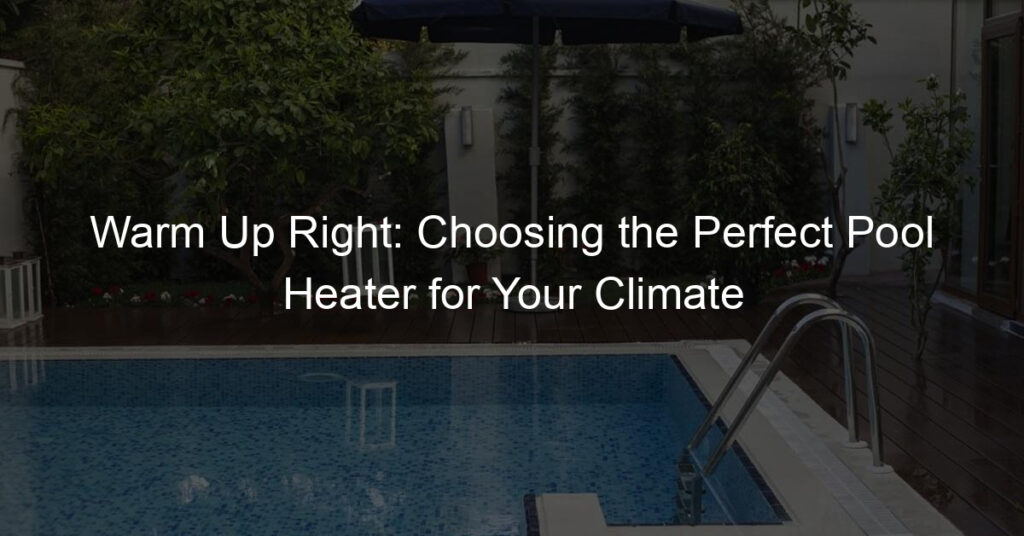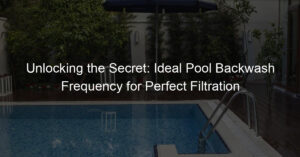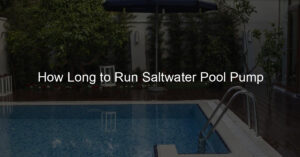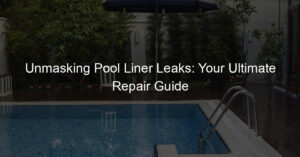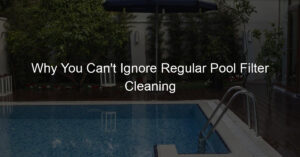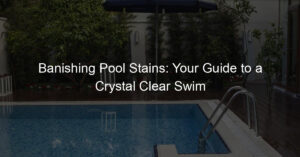Introduction to Pool Heater Selection
Choosing the right pool heater is a crucial decision for any pool owner. The right heater can extend your swimming season, increase the value of your pool, and enhance your swimming experience. In this section, we will discuss the importance of selecting the right pool heater and the factors to consider when making your choice.
-
- Importance of Choosing the Right Pool Heater
Choosing the right pool heater is not just about comfort; it’s also about efficiency and cost-effectiveness. A well-chosen pool heater can provide you with a comfortable swimming environment even during the colder months. It can also help you save on energy costs by efficiently heating your pool. Moreover, the right pool heater can add value to your property and extend the lifespan of your pool.
-
- Factors to Consider When Choosing a Pool Heater
There are several factors to consider when choosing a pool heater. These include the size of your pool, the climate of your location, your budget, and your energy efficiency goals. The size of your pool will determine the capacity of the heater you need. The climate will influence the type of heater that will work best for you. Your budget will guide you in choosing a heater that is affordable and cost-effective. Lastly, your energy efficiency goals will help you select a heater that is eco-friendly and energy-saving.
In the following sections, we will delve deeper into these factors and provide you with a comprehensive guide on how to choose the best pool heater for your needs. Whether you are a new pool owner or looking to upgrade your current heater, this guide will provide you with valuable insights and practical tips to make an informed decision.
Understanding Different Climates and Their Impact on Pool Heaters
When it comes to pool heaters, one size does not fit all. The climate in which you live can significantly impact the performance and efficiency of your pool heater. Let’s delve into how different climates affect pool heaters and what you need to know about climate-specific pool heaters.
- How climate affects pool heater performance
The performance of your pool heater is directly linked to the climate of your area. In colder climates, pool heaters have to work harder to maintain a comfortable swimming temperature, leading to higher energy consumption. On the other hand, in warmer climates, pool heaters may not need to work as hard, resulting in lower energy use.
For instance, a pool heater in Alaska will consume more energy than one in Florida due to the difference in ambient temperature. This is because the pool heater in Alaska has to compensate for the colder outdoor temperature to keep the pool water warm.
- Climate-specific pool heaters: What you need to know
Understanding your climate is crucial when selecting a pool heater. Some heaters are designed to perform optimally in specific climates. For example, solar pool heaters are an excellent choice for areas with abundant sunshine, like California or Arizona. They harness the sun’s energy to heat the pool, making them energy-efficient and cost-effective in these regions.
On the other hand, heat pump pool heaters are more suited for warmer climates where the temperature rarely drops below 50 degrees Fahrenheit. They work by extracting heat from the air and transferring it to the pool water. In colder climates, their efficiency can drop significantly.
Gas pool heaters, which burn natural gas or propane to generate heat, can work efficiently in any climate. However, they can be more expensive to operate, especially in colder climates where they have to work harder.
In conclusion, understanding your local climate and how it impacts pool heater performance is key to making an informed decision when purchasing a pool heater. Always consider your climate and choose a pool heater that is designed to perform optimally in your specific conditions.
Types of Pool Heaters
Gas Pool Heaters
- Overview and FunctionalityGas pool heaters are a popular choice for many pool owners. They work by burning natural gas or propane in a combustion chamber. The heat generated is then transferred to the pool water, warming it up. This type of heater is known for its speed and efficiency, as it can heat a pool quickly, regardless of the outside temperature.
- Pros and Cons
Pros Cons Fast heating time Higher operational costs Works in any weather Requires regular maintenance Can heat large pools Not as energy-efficient as other types While gas pool heaters are excellent for quick heating and work well in any climate, they do have some drawbacks. They can be more expensive to run and require regular maintenance. Additionally, they are not as energy-efficient as other types of pool heaters.
- Best Climates for Gas Pool HeatersGas pool heaters are versatile and can work well in a variety of climates. However, they are particularly effective in colder climates where other types of heaters may struggle. Since they don’t rely on the sun or air temperature to heat the pool, they can operate efficiently even in cold, cloudy conditions.
Heat Pump Pool Heaters
Heat pump pool heaters are a popular choice for many pool owners. Let’s dive into understanding their functionality, their pros and cons, and the best climates for their use.
- Overview and Functionality
Heat pump pool heaters work by extracting heat from the air, amplifying it with a compressor, then transferring this heat to the pool water. They are energy-efficient and can maintain a consistent pool temperature, regardless of the weather.
- Pros and Cons
| Pros | Cons |
|---|---|
| Energy-efficient | Higher upfront cost |
| Long lifespan (up to 20 years) | Requires outside temperatures above 45°F to work efficiently |
| Low operating cost | Slower heat-up time compared to gas heaters |
- Best Climates for Heat Pump Pool Heaters
Heat pump pool heaters are best suited for climates with moderate heating needs. They work most efficiently when the outdoor temperature is above 45°F. Therefore, they are an excellent choice for regions with warm and mild climates, like Florida or California.
Solar Pool Heaters
Let’s dive into the world of solar pool heaters and explore how they work, their advantages and disadvantages, and the climates where they perform best.
- Overview and Functionality
Solar pool heaters use the sun’s energy, a renewable and free source, to heat your pool. They consist of solar collectors—panels that capture the sun’s heat—connected to a series of tubes. Pool water is pumped through these tubes, where it gets heated before returning to the pool. This method is eco-friendly and can significantly reduce your pool heating costs.
- Pros and Cons
| Pros | Cons |
|---|---|
| Environmentally friendly | Dependent on sunlight |
| Low operating costs | Higher upfront costs |
| Long lifespan | Requires large space for solar panels |
While solar pool heaters are an excellent choice for the environment and can save money in the long run, they do have some drawbacks. They rely on sunlight, so they might not work as effectively on cloudy days or during the night. Also, the initial installation cost can be higher than other types of heaters. Plus, you’ll need a large enough area to install the solar panels.
- Best Climates for Solar Pool Heaters
Solar pool heaters perform best in sunny climates, where there’s abundant sunlight most of the year. Places like Florida, California, and Arizona are ideal. However, they can also work in less sunny regions during the summer months. Remember, the effectiveness of a solar pool heater is directly related to the amount of sunlight available.
Energy-Efficient Pool Heaters
When it comes to heating your pool, energy efficiency is a key factor to consider. Not only can it save you money on your energy bills, but it’s also better for the environment. In this section, we will explore the importance of energy efficiency in pool heaters and highlight some of the top energy-efficient pool heaters in the market.
- Importance of energy efficiency in pool heaters
Energy efficiency in pool heaters is crucial for several reasons. Firstly, an energy-efficient pool heater uses less energy to heat your pool, which can significantly reduce your energy bills. According to the U.S. Department of Energy, you can save up to 70% on your heating costs by choosing an energy-efficient pool heater.
Secondly, energy-efficient pool heaters are better for the environment. They produce fewer greenhouse gas emissions, which can help to reduce your carbon footprint. Lastly, energy-efficient pool heaters often have a longer lifespan than less efficient models, which means you won’t need to replace them as often.
- Top energy-efficient pool heaters in the market
There are several energy-efficient pool heaters available in the market today. Here are a few of the top models:
| Model | Energy Efficiency | Lifespan |
|---|---|---|
| Hayward H400FDN Universal H-Series | 83% | 7-10 years |
| Pentair 460737 MasterTemp High Performance | 84% | 8-12 years |
| Raypak 406,000 BTU Digital Electronic Ignition Natural Gas Pool Heater | 82% | 7-9 years |
These models are highly rated for their energy efficiency, performance, and durability. They use advanced technology to heat your pool quickly and efficiently, saving you money and reducing your environmental impact.
In conclusion, energy-efficient pool heaters are an excellent investment for any pool owner. They can save you money, reduce your environmental impact, and provide a comfortable swimming environment for many years to come.
Pool Heater Buying Guide
Choosing the right pool heater can be a challenging task. However, by considering a few key factors, you can make the process simpler and more effective. Here’s a step-by-step guide to help you navigate through your pool heater purchase.
-
- Assess Your Climate and Pool Usage
The climate in your area and how often you use your pool are two important factors to consider. If you live in a colder climate, you’ll need a more powerful heater. If you use your pool frequently, you’ll need a heater that can maintain a comfortable temperature consistently.
-
- Consider the Type of Pool Heater
There are several types of pool heaters available, including gas, electric, and solar heaters. Each has its own advantages and disadvantages. Gas heaters, for example, heat up quickly but can be expensive to run. Solar heaters are energy-efficient but may not be as effective in cloudy weather. Choose a type that suits your needs and budget.
-
- Check Energy Efficiency Ratings
Energy efficiency is another crucial factor to consider. A more energy-efficient heater may cost more upfront, but it can save you money in the long run by reducing your energy bills. Look for heaters with high energy efficiency ratings.
-
- Consider the Size of the Pool Heater
The size of your pool heater should match the size of your pool. A heater that’s too small won’t heat your pool effectively, while a heater that’s too large can waste energy. Consult with a pool professional to determine the right size for your pool.
-
- Check for Warranty and Support
Finally, make sure the pool heater comes with a good warranty and customer support. A warranty can protect you if the heater breaks down, while good customer support can help you with any issues or questions you may have.
By following these steps, you can find a pool heater that’s perfect for your needs. Remember, the goal is to find a heater that provides a comfortable swimming environment while also being energy-efficient and cost-effective.
Pool Heater Installation
Installing a pool heater is a crucial step in ensuring your swimming pool is ready for use, regardless of the weather. This process can be done by yourself (DIY) or by hiring a professional. Let’s delve into these two options and the key steps involved in pool heater installation.
-
- DIY vs Professional Installation
When it comes to installing a pool heater, you have two options: Do-It-Yourself (DIY) or hiring a professional. Both options have their pros and cons.
DIY installation can save you money. However, it requires a good understanding of the heater’s working mechanism, plumbing, and electrical connections. If you’re confident in your abilities and have the time, DIY could be a viable option.
On the other hand, professional installation ensures the job is done correctly and safely. Professionals have the necessary skills and experience to handle any unexpected issues that may arise. Although it may cost more upfront, it could save you from costly repairs down the line.
-
- Key Steps in Pool Heater Installation
Whether you choose DIY or professional installation, understanding the key steps involved in pool heater installation can be helpful. Here are the basic steps:
-
-
- Choose the Right Location: The heater should be installed in a well-ventilated area, away from windows and doors, to prevent exhaust gases from entering your home.
- Prepare the Base: A concrete slab is ideal for placing the heater. It should be level and sturdy to support the weight of the heater.
- Connect the Plumbing: The heater should be connected to the pool’s plumbing system. The water from the pool comes into the heater, gets heated, and then returns to the pool.
- Connect the Gas/Electric Supply: Depending on the type of heater, connect it to the gas line or electrical supply.
- Test the Heater: Once everything is connected, turn on the heater to ensure it’s working properly.
-
Remember, safety should always be your top priority. If you are unsure about any step, it’s best to hire a professional.
Pool Heater Maintenance
Maintaining your pool heater is crucial to its longevity and efficiency. Regular maintenance can help prevent common problems and ensure your pool stays warm all year round. Here, we will discuss some regular maintenance tips and common pool heater problems along with their solutions.
- Regular Maintenance Tips for Pool Heaters
Regular maintenance of your pool heater can help it run more efficiently and last longer. Here are some tips to keep your pool heater in top shape:
- Regular Cleaning: Clean the heater’s filter regularly to prevent clogging. This can be done by turning off the heater, removing the filter, and washing it with a hose.
- Check for Leaks: Regularly check your pool heater for leaks. If you notice any, contact a professional to fix them.
- Annual Inspection: Have a professional inspect your pool heater annually. They can spot potential issues before they become major problems.
- Common Pool Heater Problems and Solutions
Even with regular maintenance, pool heaters can sometimes encounter problems. Here are some common issues and how to fix them:
- Heater Won’t Turn On: This could be due to a tripped circuit breaker or a faulty switch. Check the circuit breaker and replace the switch if necessary.
- Heater Isn’t Heating: This could be due to a dirty filter or low gas pressure. Clean the filter and check the gas pressure.
- Heater is Leaking: This could be due to a cracked heat exchanger or a loose connection. Contact a professional to fix this issue.
Remember, regular maintenance and prompt attention to any issues can keep your pool heater running efficiently for years to come.
Conclusion: Choosing the Best Pool Heater for Your Climate
As we wrap up our comprehensive guide on pool heaters, let’s revisit the key points and provide some final thoughts on selecting the best pool heater for your climate.
-
- Recap of key points
Throughout this guide, we’ve explored various aspects of pool heaters. We’ve learned that different climates significantly impact the type of pool heater you should choose. From solar heaters, which are ideal for sunny climates, to heat pumps that work best in mild climates, and gas heaters that are perfect for colder regions, understanding your climate is crucial.
We’ve also delved into the importance of energy efficiency, and how selecting an energy-efficient pool heater can save you money in the long run. Moreover, we’ve provided a buying guide to help you consider factors like size, cost, and maintenance before making a purchase.
-
- Final thoughts on pool heater selection
Choosing the right pool heater for your climate can seem daunting, but with the right information, it becomes a much simpler task. Remember, the goal is to find a heater that not only suits your climate but also meets your specific needs and budget.
Whether you live in a sunny, mild, or cold climate, there’s a pool heater out there for you. By considering the type, energy efficiency, size, cost, and maintenance, you can make an informed decision and enjoy your pool year-round, regardless of the weather.
In conclusion, a pool heater is a valuable investment that extends your swimming season and enhances your pool experience. So, take your time, do your research, and choose wisely. Happy swimming!

